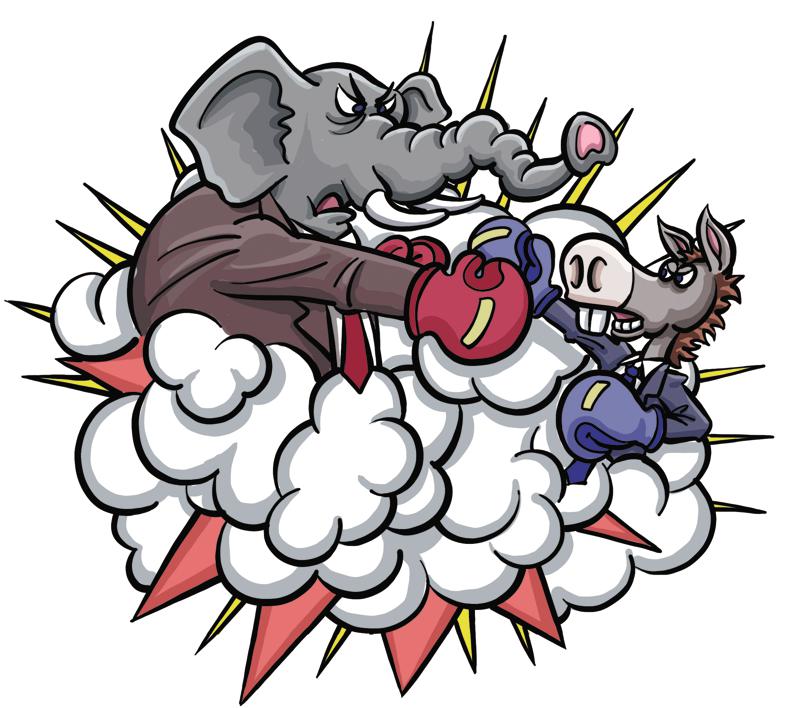Bipartisan games shouldn't derail San Francisco consensus
By Li Qingsi | China Daily | Updated: 2024-01-31 07:36

The US presidential election scheduled for Nov 5 is critical for both Democrats and Republicans. For years, the presidential candidates of both parties have used China as a scapegoat to please the American people and garner their votes. Although the two parties accuse each other during the presidential campaign, their favorite punching bag has been China for the past few decades. The candidates blame China for all the problems ailing the US, assuming that it is a shortcut for making political capital.
Hopefully, after the recent Sino-US summit in San Francisco, the two parties' candidates will refrain from blaming China for everything and, instead, implement the measures the two countries' leaders have agreed on.
But, in reality, what direction will Sino-US relations take in the rest of 2024?
In the United States, the states and parties are holding primaries and caucuses for the presidential election, which are expected to be completed by June. After that, between July and early September, the two parties will hold nominating conventions to choose their candidates. September and October will see the two parties' candidates participating in presidential debates, which will lead up to the presidential election on Nov 5.
For China, the presidential election is the US' internal affairs, and China's main task is to achieve full economic recovery and boost growth to, among other things, create more jobs.
Since both countries need a peaceful environment both within and without their boundaries — the US to ensure the presidential is held smoothly, and China to achieve full economic recovery — they should endeavor to stabilize their overall relations.
China, on its part, has long emphasized the need for improving Sino-US relations, not least because they have a huge impact on regional and global peace and stability.
However, it will be a big pity if the US side does not necessarily share China's vision. The US shouldn't continue its antagonistic policies against China in order to maintain its global hegemony and thus undermine Sino-US ties. And, the Democrat as well as Republican politicians shouldn't lay the blame on China for all of the US' ills in order to divert public attention from their failure to put things in order at home.
In any country that is governed based on rule of law, the US government, the House of Representatives and the Senate and their members would have been held accountable for their remarks against China. But US politicians have realized there is no price to pay for blaming China for all the US' ills or provoking China by interfering in its internal affairs.
Such provocations include former House speaker Nancy Pelosi's visit to Taiwan in August 2022 and the Congress passing the "National Defense Authorization Act" in December 2023 which authorizes the US administration to sell "defensive weapons" to the Taiwan island to boost its so-called deterrence against the Chinese mainland. Also, US social elites in general have developed an unfavorable attitude toward China, and ordinary American people are often brainwashed by their mainstream media into believing that China is indeed the US' principal rival.
The US has also weaponized high-tech and has been hyping up the "China threat" theory so it can keep selling arms to Taiwan and aggravate tensions across the Taiwan Strait. No wonder Sino-US ties are perhaps at their lowest level since the establishment of diplomatic relations.
Amid all this, the China-US summit in San Francisco paved the way for the two countries to normalize bilateral ties just as the meeting between the two heads of state in Bali, Indonesia, in 2022 did. At the San Francisco summit, the two sides reached more than 20 consensuses in fields such as diplomacy, people-to-people and cultural exchanges, global governance and military security, with China vowing to cooperate with US businesses, and collaborate with it on climate action.
But instead of trying to upgrade bilateral ties, if the US administration continues to sell weapons and military equipment to Taiwan, it could trigger a conflict in the election year. Furthermore, the Biden administration needs to see the larger picture of win-win cooperation. More than 40 years of Sino-US relations have manifested that mutual respect and cooperation can promote prosperity and confrontations and hostilities are detrimental to bilateral ties.
As part of their diplomatic compulsion, major powers engage in confrontation instead of promoting inclusiveness. In contrast, China is ready to strengthen economic cooperation with the US, take measures to improve overall Sino-US ties and inject more positive energy into the most important bilateral relations of the 21st century for the sound development of China-US relations.
The author is a researcher at the National Academy of Development and Strategy, and a professor of international studies, Renmin University of China.
The views don't necessarily reflect those of China Daily.
If you have a specific expertise, or would like to share your thought about our stories, then send us your writings at opinion@chinadaily.com.cn, and comment@chinadaily.com.cn.
























